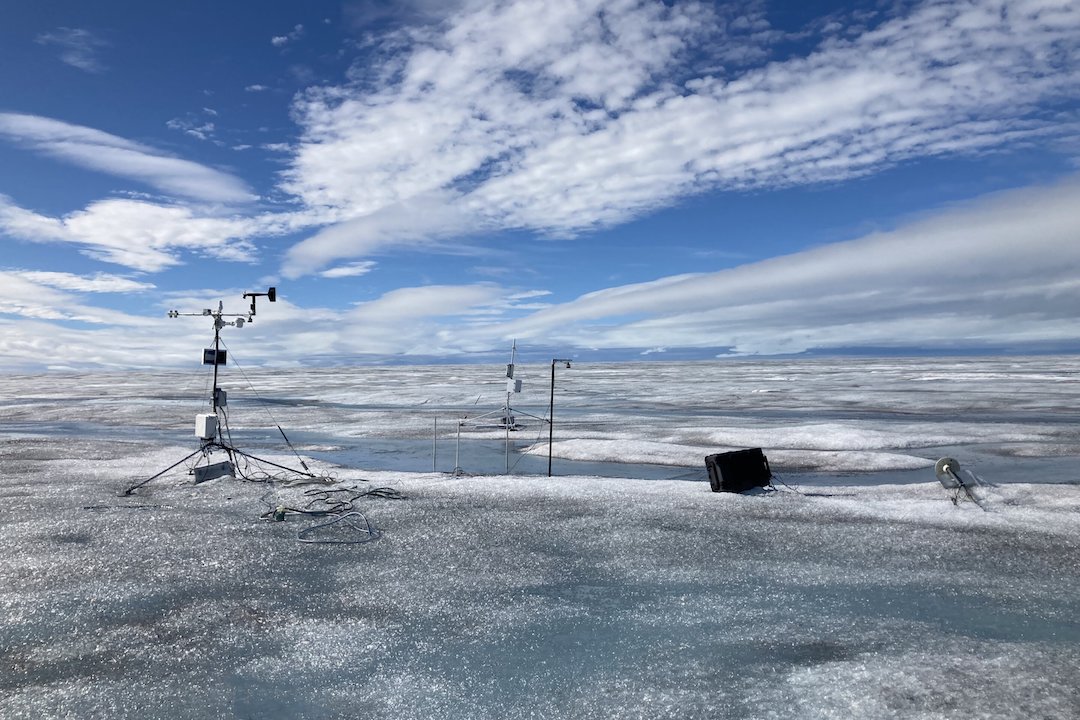
Calculating how much Greenland’s ice sheet grows or shrinks each year is straightforward: scientists compute how much snow fell during the part of the year when the ice cap grows and then subtract how much of the ice melts or breaks off as icebergs during the part of the year when it shrinks. It is also becoming increasingly predictable: in all but two years since the 1996-97 “melt year”, as scientists call it, the ice sheet has shrunk.
Melt years end on 1 September, and, according to this year’s figures, compiled by Geus, the Danish and Greenlandic geological survey, the ice sheet lost 84 billion tonnes in the 2021-22 melt year, marking the 26th year running the ice cap has shrunk. Though this was one of the smaller losses observed during this streak (see chart below), it is still a “huge amount”, according to Geus, that raised the water level in the world’s oceans by about 0.2 millimetres.
Ironically, the reason for this year’s somewhat reduced rate of loss may be the warm European summer. This is due to a phenomenon known as the North Atlantic Oscillation that typically causes Greenland to have cold weather when the weather in Europe is warm. The reverse, though is also true; when Europe has a cold snap, the temperature in Greenland spikes.
Gathering the data Geus needs to make its calculation is also straightforward, if demanding; it requires compiling readings from 40 automatic weather stations (pictured above) located at key locations on the ice sheet, satellite measurements and field observations. All this information is then plugged into the equations that represent how scientists believe the climate is behaving, and then this turns out the final sum. Automated though they may be, the weather stations must be inspected each year. According to Geus, they have also been updated in recent years to be able to measure not just snowfall, but also rain, a form of precipitation that, in the past, was unheard of. Predictable, yes. Immutable, no.
Geus
Kevin McGwin. PolarJournal
Featured image: Dr Michael Wenger
More about this topic





